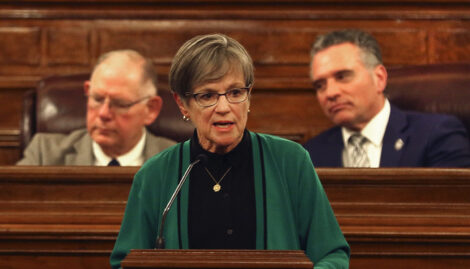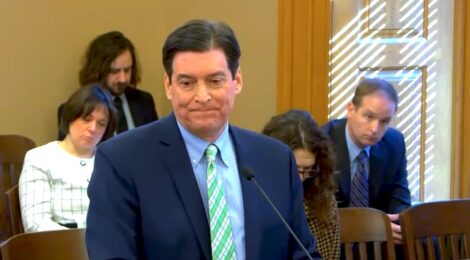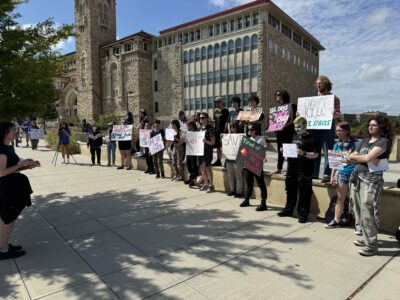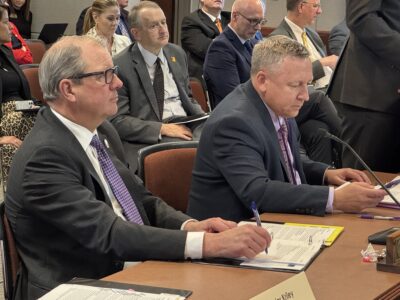Abortion foes see chance for tougher restrictions
New York ? Buoyed by huge election gains for their allies, anti-abortion activists head into their annual March for Life rallies sensing a prime opportunity in many states to rein in the broad abortion access established 38 years ago by the Roe v. Wade decision.
Foes of abortion gained strength in Congress, among state governors and in many legislatures, raising hopes among social conservatives for a broad surge of anti-abortion bills.
“We are seeing a cultural shift toward protecting life and rolling back the tide of unrestricted abortions, said Charmaine Yoest, president of Americans United for Life, in a statement ahead of Saturday’s anniversary of the 1973 U.S. Supreme Court ruling.
Yoest and her allies have particularly high hopes for three types of bills under consideration in several states:
• Measures modeled after a Nebraska law passed last year that outlaws abortions after 20 weeks of pregnancy, based on the assertion that fetuses can feel pain after that point. That’s a departure from the standards set by Roe, which allows states to limit abortions when there’s a viable chance the fetus could survive outside the womb, generally between 22 and 24 weeks.
• Bills requiring women to have an ultrasound before an abortion. Some versions would also require doctors to describe the ultrasound image of the fetus to the woman.
• Laws prohibiting abortion coverage in health insurance plans offered by the new state exchanges that are to commence in 2014 under President Barack Obama’s health care overhaul. Five states passed such measures last year; more may follow suit.
In many states, prospects for passage of such measures are bright, although they may face court challenges. NARAL Pro-Choice America, a leading abortion-rights group, said there are now 29 anti-abortion governors, an increase of eight, including 15 in states where abortion opponents also control both legislative chambers.
While abortion-rights supporters traditionally hold commemorations of the Roe decision, the anniversary has become an even higher-profile date for the anti-abortion movement. Its major event, the March for Life in Washington, D.C., is scheduled this year to take place on Monday — not the anniversary itself — while other events are scheduled throughout the weekend nationwide.
On both sides of the debate, the mood contrasts sharply with 2009 and 2010.
Two years ago, the anniversary came two days after Obama’s inauguration — a time of enthusiasm among abortion-rights supporters. A year ago, the anniversary coincided with the first day of testimony in the murder trial of Scott Roeder, who was later convicted of killing late-term abortion provider Dr. George Tiller at his church in Wichita, Kan.
Kansas is now one of the states where anti-abortion activists hope for dramatic legislative gains.





